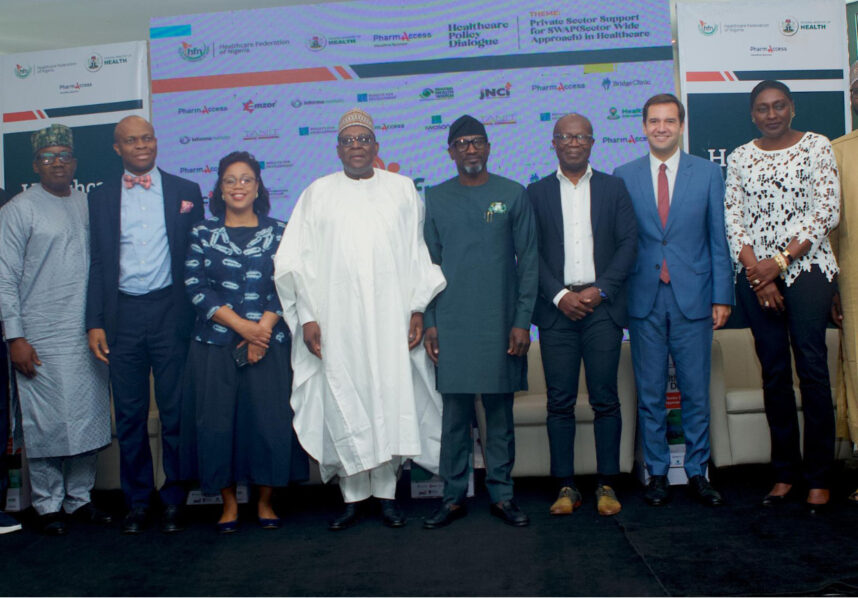
A coalition of Nigerian healthcare stakeholders under the Healthcare Federation of Nigeria (HFN) has stated that collaboration between the private sector and government is key to transforming the country’s healthcare system and achieving Universal Health Coverage (UHC).
President of HFN, Dr. Pamela Ajayi, shared this view during a policy dialogue organised by the federation.
The event, themed “Private Sector Support for SWAP (Sector-Wide Approach) in Healthcare,” held in Abuja, explored how sustainable health reforms can be achieved through public-private partnerships (PPPs).
“The sector-wide approach (SWAp) is urgently needed to bring together government, donors, NGOs, and private sector stakeholders under a unified framework to ensure development efforts are coordinated and aligned with national priorities,” Ajayi noted.
The policy dialogue gathered ministers, dignitaries, international experts, and prominent healthcare leaders to discuss the future of Nigeria’s healthcare sector.
During the event, Coordinating Minister of Health and Social Welfare, Prof. Muhammad Pate, highlighted key challenges in the sector, including insufficient infrastructure, limited access to essential services, and a shortage of healthcare professionals.
“To achieve the health sector we desire, public-private partnerships are a no-brainer,” he stated.
Minister of State for Health and Social Welfare, Dr. Tunji Alausa, presented a multi-faceted strategy aimed at overhauling the healthcare system, with a focus on data management and digitalisation. He called for better use of health data, proposing a standardised Patient Management Record (PMR) system to enhance data collection and service delivery across the country.
“In this digital age, accurate and actionable health data is critical,” Alausa said, stressing that the integration of technology in healthcare is essential for Nigeria’s economic progress.
Chairman of the House Committee on Health Institutions, Amos Magaji, and President of the UNITE Parliamentarians Network for Global Health, Dr. Ricardo Leite, called for a shift towards preventive healthcare.
They also discussed the transformative role artificial intelligence could play in improving health outcomes.
Renowned public health leader Prof. Ilona Kickbusch, recognised for her work in global health governance and as Director of the Digital Transformations for Health (DTH) Lab, spoke about the importance of digital transformation.
She highlighted the need for investing in digital health literacy, especially for Nigeria’s youth, noting that over half of the country’s population is under 19.
Kickbusch praised HFN’s efforts in empowering young people and urged the continued involvement of youth in shaping Nigeria’s digital health system.
HFN announced that the policy dialogue would become an annual event, providing a platform for stakeholders to track progress, address challenges, and explore new opportunities for healthcare reform.



